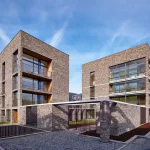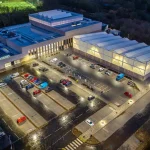Glasgow Planning News, Change, Building, Public, Project, Design, Hierarchy, Consultation
Glasgow Planning System News
Changes to Application System, Strathclyde, Western Scotland
post updated 25 August 2024
Local Communities To Have Greater Role In Planning Process
Glasgow Planning News
Major changes in the planning system are now underway in Glasgow. At the heart of the changes lies the desire for local people to influence plans at an early stage and a more proportionate method of dealing with planning applications depending on their size and impact.
23 April 2009
Glasgow Planning News
The way planning applications are dealt with now depends on where they fall in a hierarchy of development, ranging from national to major to local. National applications (such as those associated with the 2014 Commonwealth Games) and major ones (more than 50 houses or 10,000 square metres of office or retail space) will be scrutinised in a number of new ways.
Firstly, these applications will be subject to pre-application consultation with local communities usually about twelve weeks before an application is made. This consultation is now the responsibility of the developer, who must formally consult the local Community Council and hold a public event to allow local residents to make their views known.
The Council hopes that such events will be advertised by developers. When an application is subsequently lodged, the developer must submit a pre-application consultation report detailing what was done, and any response. Any public comments received during this pre-application phase would not count as representations to the subsequent planning application. These would have to be lodged separately, as now, when the application is made.
Secondly, these applications would be subject to pre-application hearings where applicants and those who have made representations would be given the opportunity to air their views. Such applications – national and major – would also have to be determined by the full Council.
All other applications would be considered ‘local’ and could be delegated to planning officers to determine without being considered by elected members.
Given their significance, the time periods for deciding national and major applications would be extended from the current two months to four months. Local applications would stick to the two month period. The right of appeal for national and major applications refused would remain with Scottish Ministers. For refusals of local applications delegated to planning officers the appeal route would be to a local review body, a committee of the local planning authority. The time limit for any appeal would drop from the current six months to three months. Planning permission in all cases would be good for three years rather than the current five.
One more important change related to the planning process will take place this year, while another has already done so. From 3 August, the responsibility for owner and neighbour notification about planning applications passes from the applicant to the local authority. And in keeping with its desire to focus planning resources on the most significant applications, the Scottish Government has recently consulted on changes to the rules for small-scale householder development and, on 12 March, brought in new rules for domestic micro-regeneration like solar panels. Again, these changes should allow individuals more freedom to develop their property while continuing to protect residential amenity.
Councillor Shaukat Butt, convener of Glasgow City Council’s Planning Applications Committee, said: “These changes should ensure that people and communities can get more involved early on in the planning process and that bigger applications get the focus they deserve. They should deliver better development for the City”.
Glasgow Planning System information from Glasgow City Council
Architecture in Strathclyde
Glasgow School of Art Competition

picture from architect
Comments / photos for the Glasgow Planning System Changes page welcome.



